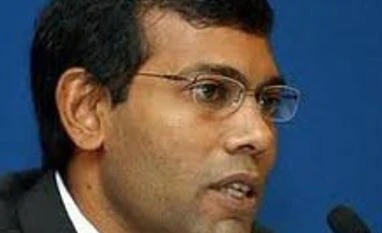A political crisis deepened in the Maldives today when parliament's speaker warned caretaker president Mohamed Waheed that his mandate had expired after the country failed to hold elections on time.
Speaker Abdulla Shahid, who is linked to the opposition Maldivian Democratic Party (MDP), told Waheed that he had no right to govern because his time in office had lapsed under the terms of the constitution.
The country's controversial Supreme Court postponed a run-off presidential vote which could have elected a president yesterday, a move slammed by the United States and likely to draw further international criticism.
He also informed other branches of the state that Waheed was no longer able to exercise the powers of a president.
When it blocked the run-off vote on Sunday, the Supreme Court said Waheed could continue to hold office until a run-off election is held on November 16, five days after his term should have ended today.
The court, dominated by judges named during 30 years of autocratic rule by former president Maumoon Abdul Gayoom, has blocked three attempts to elect a new leader for the Sunni Muslim nation of 350,000 people.
Mohamed Nasheed, the country's first democratically elected president who was ousted in February last year, is the frontrunner to return to power. He has accused the court and Waheed of deliberately blocking him.
He secured nearly 47% of the vote in a first-round vote on Saturday, compared with just under 30% for his nearest rival Abdulla Yameen, the half brother of Gayoom.
The United States accused the Supreme Court of "unduly" interfering in the democratic process by postponing the runoff, five years after the Indian Ocean islands introduced multi-party democracy for the first time.
"Efforts by the Supreme Court to repeatedly and unduly interfere in the electoral process subverts Maldives' democracy and takes decision-making out of the hands of the people," the US embassy to the Maldives and Sri Lanka said yesterday.
Speaker Abdulla Shahid, who is linked to the opposition Maldivian Democratic Party (MDP), told Waheed that he had no right to govern because his time in office had lapsed under the terms of the constitution.
The country's controversial Supreme Court postponed a run-off presidential vote which could have elected a president yesterday, a move slammed by the United States and likely to draw further international criticism.
More From This Section
"There is no other provision for extending the period of office of the president," the speaker said in a letter to Waheed.
He also informed other branches of the state that Waheed was no longer able to exercise the powers of a president.
When it blocked the run-off vote on Sunday, the Supreme Court said Waheed could continue to hold office until a run-off election is held on November 16, five days after his term should have ended today.
The court, dominated by judges named during 30 years of autocratic rule by former president Maumoon Abdul Gayoom, has blocked three attempts to elect a new leader for the Sunni Muslim nation of 350,000 people.
Mohamed Nasheed, the country's first democratically elected president who was ousted in February last year, is the frontrunner to return to power. He has accused the court and Waheed of deliberately blocking him.
He secured nearly 47% of the vote in a first-round vote on Saturday, compared with just under 30% for his nearest rival Abdulla Yameen, the half brother of Gayoom.
The United States accused the Supreme Court of "unduly" interfering in the democratic process by postponing the runoff, five years after the Indian Ocean islands introduced multi-party democracy for the first time.
"Efforts by the Supreme Court to repeatedly and unduly interfere in the electoral process subverts Maldives' democracy and takes decision-making out of the hands of the people," the US embassy to the Maldives and Sri Lanka said yesterday.
)